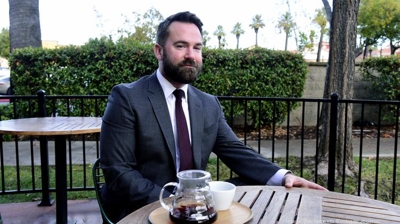
-
 Step 1: The ArrestDon’t let the police take advantage of you while you’re in custody. Call Walsh Law right away, and we’ll get to work protecting your rights so you don’t inadvertently self-incriminate.
Step 1: The ArrestDon’t let the police take advantage of you while you’re in custody. Call Walsh Law right away, and we’ll get to work protecting your rights so you don’t inadvertently self-incriminate. -
 Step 2: The ArraignmentWalsh Law is an aggressive Folsom criminal defense firm that can argue for reasonable bail and help you await the end of your case from the comfort of your home.
Step 2: The ArraignmentWalsh Law is an aggressive Folsom criminal defense firm that can argue for reasonable bail and help you await the end of your case from the comfort of your home. -
 Step 3: Pre-Trial HearingsWe’ll evaluate the prosecution’s case, challenge weak evidence and inconsistencies, and do our due diligence to get the charges against you reduced or dropped.
Step 3: Pre-Trial HearingsWe’ll evaluate the prosecution’s case, challenge weak evidence and inconsistencies, and do our due diligence to get the charges against you reduced or dropped.
El Dorado Hills Battery Defense Attorney
Experienced Legal Representation in Battery Cases
If you’ve been arrested or charged with battery in El Dorado Hills, CA, you need immediate and experienced legal counsel. At Walsh Law, our team understands how quickly a battery charge can impact your life, relationships, and future. We offer aggressive, strategic defense tailored to the specifics of your case. Whether you're facing a misdemeanor or felony battery charge, our firm is here to fight for your rights every step of the way.
Reach out to Walsh Law today at (916) 610-3558 for a free, confidential consultation.
What is Battery in California?
Under California law, battery is defined in Penal Code § 242 as “any willful and unlawful use of force or violence upon the person of another.” Contrary to popular belief, physical injury is not required for a battery charge. Simply touching someone in a harmful or offensive way—intentionally and without their consent—can be enough to be charged.
Battery charges can arise in a variety of situations, including:
- Bar fights or altercations at social gatherings
- Domestic disputes
- Road rage incidents
- Confrontations at school or the workplace
- Resisting arrest or interactions with law enforcement
The law broadly interprets "use of force," so even minor physical contact can result in criminal prosecution, especially if the alleged victim presses charges or if law enforcement witnesses the act.
Assault vs. Battery
It’s common for people to confuse assault and battery, but they are distinct offenses under California law:
- Assault (Penal Code § 240): An attempt or threat to commit a violent injury on someone, even if no physical contact actually occurs.
- Battery (Penal Code § 242): The actual physical contact or use of force against another person.
For example, if someone swings a fist at another person but misses, that’s assault. If the fist connects, that’s battery.
Because these offenses often happen together, individuals are frequently charged with both assault and battery.
Battery Penalties
Battery charges in California range from misdemeanors to serious felonies, depending on the circumstances, severity of the incident, and the identity of the alleged victim.
Simple Battery (Penal Code § 242)
- Type: Misdemeanor
- Penalties:
- Up to 6 months in county jail
- Fines up to $2,000
- Community service or probation
Battery Causing Serious Bodily Injury (Penal Code § 243(d))
- Type: “Wobbler” (can be a misdemeanor or felony)
- Felony Penalties:
- Up to 4 years in state prison
- Higher fines and restitution to the victim
Battery on a Peace Officer (Penal Code § 243(b) and § 243(c))
- Type: Misdemeanor or felony
- Applies to: Police officers, EMTs, firefighters, and other protected officials performing their duties
- Penalties: Enhanced jail time, often mandatory
Domestic Battery (Penal Code § 243(e)(1))
- Battery against a current or former spouse, partner, or cohabitant
- Type: Misdemeanor
- Penalties:
- Up to 1 year in jail
- Fines up to $2,000
- Mandatory domestic violence counseling
- Possible loss of firearm rights
Battery convictions also carry collateral consequences, including:
- A permanent criminal record
- Immigration consequences for non-citizens
- Difficulty securing employment, housing, or professional licensing
That’s why it’s critical to have a skilled El Dorado Hills battery defense attorney from Walsh Law evaluate your case and determine the most effective defense strategy.
Legal Defenses to Battery
At Walsh Law, we customize each defense based on the facts of your case. However, several common legal defenses can apply to battery charges in California:
Self-Defense or Defense of Others
If you reasonably believed you or someone else was in immediate danger, and you used only the force necessary to protect yourself or another person, you may have a valid legal defense.
Lack of Intent
Battery requires a willful act. If the contact was accidental or involuntary, the prosecution cannot prove battery.
Consent
In some contexts, such as contact sports or mutual fights, the alleged victim may have consented to the physical interaction.
False Allegations
Unfortunately, battery accusations can be fabricated out of spite, revenge, or to gain leverage in child custody or divorce cases. We work to uncover inconsistencies, motive, and credibility issues in the accuser’s story.
Insufficient Evidence
The prosecution must prove each element of battery beyond a reasonable doubt. We challenge weak evidence, unreliable witnesses, and any procedural errors made by law enforcement.
Battery FAQs
Can battery charges be dropped if the victim doesn’t want to press charges?
While a victim’s input can influence the case, it is ultimately up to the District Attorney whether to proceed with charges. Once a report is filed, the State controls the prosecution—not the victim.
Is jail time mandatory for a first battery offense?
Not always. First-time offenders may be eligible for diversion programs, probation, or anger management classes in lieu of jail time. A strong defense can increase your chances of avoiding incarceration.
Can I be charged with battery if I didn’t leave a mark or injury?
Yes. Physical injury is not required. Any unwanted physical contact, even if minor, can qualify as battery under California law.
How long does a battery charge stay on my record?
A conviction will remain on your criminal record permanently unless it is expunged. Some battery charges may be eligible for expungement once probation is completed.
Will I lose my gun rights if I’m convicted of battery?
Certain battery convictions—particularly domestic battery or felony battery—can result in a loss of firearm rights under both state and federal law.
Speak With an El Dorado Hills Battery Defense Lawyer Today
At Walsh Law, we understand how serious and stressful a battery charge can be. Our team provides aggressive, detail-oriented representation designed to protect your freedom, rights, and future. We’ll investigate every angle, communicate openly with you, and stand up to prosecutors on your behalf.
Contact us today to get started on your path to resolution and peace of mind.
Values You Can Relate To
Client Testimonials

-
“I am always able to get ahold of him directly either by cell or text including after hours and if for some reason he isn’t immediately available, he responds as soon as he can.”- Melissa C.
-
“He was compassionate and explained to me what to expect in an easy way for me to understand. He was straightforward and delivered on what he said he could do for me!”- Claudia H.
-
“I was in a bit of a situation and public defenders weren’t doing anything to help my case as if they didn’t have time. Which they don’t, but Chris Walsh did and came up with a few methods to fight my case.”- Dewan P.






